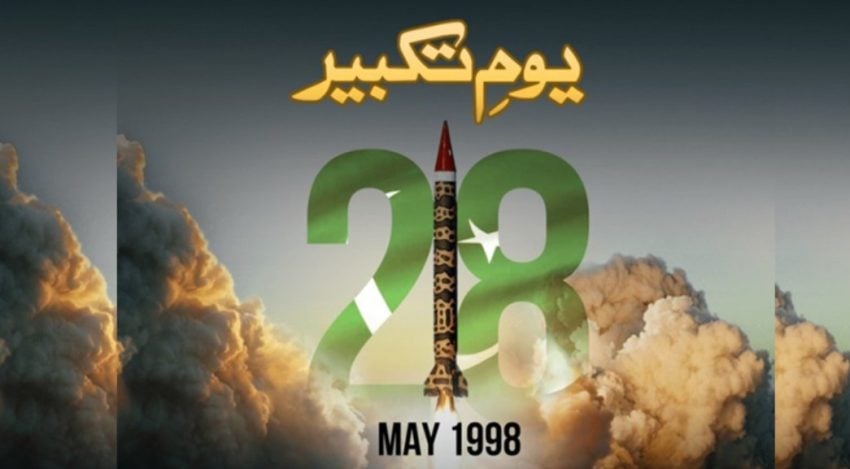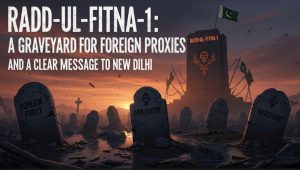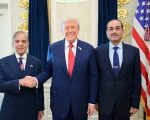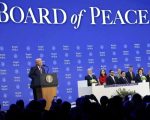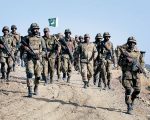May 28th. Just a date for world, I suppose. But for me, for so many of us who call Pakistan home, it’s a date that sends a shiver down the spine – a shiver of memory, of relief, of a grim but necessary pride. It’s the day the earth physically shook under our feet in the Chagai hills, but metaphorically, it was the day our nation felt it could finally stand straight, shoulders unbowed. Yom-e-Takbeer – the “Day of Greatness.” And from where I stood, and still stand, it absolutely was.
I can still feel the spring of 1998 in my bones. The air wasn’t just thick with the dust and the promise of a scorching summer; it was suffocating with a tension so raw you could almost taste it. India, our neighbour – and let’s be honest, our history is complicated, to put it mildly – had just detonated its nuclear devices. Pokhran-II. The news landed like a punch to the gut. Suddenly, the delicate, always-fraught balance of power in our region didn’t just feel tilted; it felt like it had completely capsized. That old, familiar ache of vulnerability crept in – a fear for our very sovereignty.
And then the pressure. Oh, the pressure. It descended on us like a suffocating blanket. From every corner of the globe, a chorus of voices – some cajoling, some demanding, some openly threatening – urging, almost commanding, Pakistan to show “restraint.” Don’t test, they said. Sanctions were dangled over us like the sword of Damocles. Aid packages were hinted at if we behaved. Isolation was the bogeyman if we dared to think for ourselves. It felt like the whole world was holding its breath, waiting to see if we’d crumble.
Inside Pakistan, though? The conversation was different. Yes, it was agonizing. My heart, like many others, felt heavy with the weight of the potential consequences. But beneath that anxiety, a fierce, almost primal instinct was roaring to life: the instinct to protect our own. How could we, a people whose very identity is rooted in a struggle for self-determination, simply stand by and watch our security be so blatantly undermined? Could we truly place our trust, our future, in the hands and guarantees of others when our home felt so directly threatened? The answer thundering back from the streets, from conversations in living rooms, from the deep conviction in people’s eyes, was a resounding ‘no.’ We had to find our own strength.
Prime Minister Nawaz Sharif and our leadership faced an almost impossible choice, didn’t they? Test, and face the world’s wrath, the economic pain. Don’t test, and live forever under a nuclear shadow, our autonomy compromised, our ability to make our own choices diminished. Our brilliant scientists, men like Dr. A.Q. Khan and Samar Mubarakmand, along with their dedicated teams, had quietly, diligently, done their impossible work. They were ready. The ball was in the politicians’ court, but it felt like the will of the people was already clear.
I remember the days leading up to it – the news bulletins devoured, every rumour whispered and amplified, a collective knot of anxiety tightening in the nation’s stomach. We knew the world was watching, judging. But what weighed on my mind, on our minds, was far more personal: it was our children’s future, the safety of our land.
And then, May 28th. Pakistan answered. Deep within the rugged, ancient granite of the Balochistan mountains, our response echoed. The mountains didn’t just roar; they spoke for a nation that had found its voice. When the news broke, it was like a dam bursting. Not a dam of aggression, but of pent-up fear released into relief, into an almost tearful jubilation, into a profound, unifying sense of national pride. Chants of “Allahu Akbar!” and “Pakistan Zindabad!” weren’t just slogans; they were a collective exhale, a deep breath of a nation that had secured its own ground. We had done it. Against it all, we had asserted our right to exist, to be secure.
Yom-e-Takbeer, for me, was never about aggression or a desire to project power outward. It was, and always has been, about one thing: securing our home, our Pakistan. This capability isn’t a sword to threaten others; it’s a shield, forged in the fires of necessity, purely for the defense of our motherland. It was a reluctant step, yes, a heavy responsibility we shouldered only to ensure our survival, to bring some measure of stability back to a dangerously unequal equation. It was our way of saying, quietly but firmly, that Pakistan would not be intimidated, that our right to chart our own course was not up for debate. It was, and is, a testament to the quiet courage of our people and the sheer brilliance of our scientists.
Yes, the sanctions came. And yes, they hurt. We tightened our belts, we shared what little we had, and we endured. Because, deep down, we all knew that the alternative – a future lived in constant fear, under perpetual threat – was a price too terrible to contemplate.
Today, all these years later, Yom-e-Takbeer still stirs something deep within me. It’s a powerful reminder of the immense courage that decision took, of the global gales we weathered, and of the unbreakable spirit that defines us as a nation. Let me be absolutely clear: this strength isn’t for adventurism or for casting a shadow on others. It’s the solemn, sacred vow of a nation to protect itself, to defend its own hearth and home. It’s a day to reflect on the heavy burden of deterrence – a burden we carry not to menace, but to ensure that no one can unilaterally dictate our future, and that our children can grow up with the same sense of security we fought to preserve. It was, and for me, it will always remain, our day of quiet, determined greatness.
No one can coerce Pakistan through use or threat of force, says Army’s top brass

